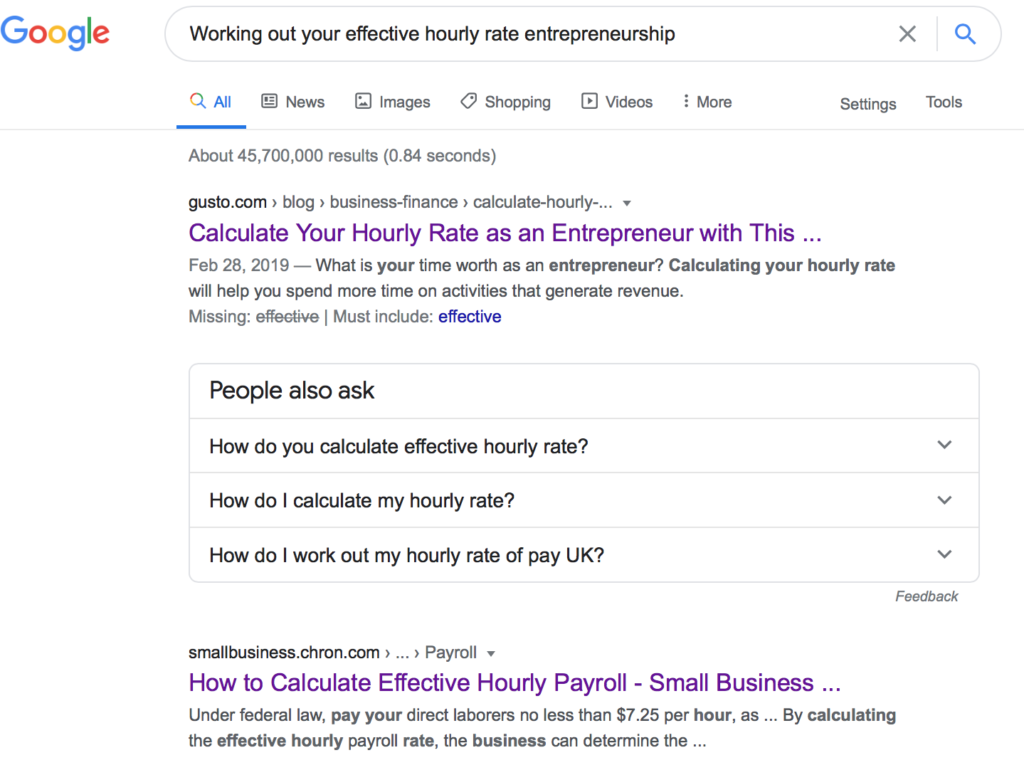
How much should you charge for your services? For startup founders, pricing is a four-letter word - many get nervous charging higher prices and low-ball their own offers when starting out.
When I started my first Facebook policy expertise business I simply accepted what other businesses offered to pay me - which often wasn't as much as this type of exclusive-working-at-facebook-in-depth-knowledge was worth.
It is challenging to put a price tag on intangible items like connections, knowledge and time.
(Read the last blog for a guide to social media marketing here)
Yet if you are selling a product, setting a price seems a bit easier because you have very clear numbers to take into consideration, such as cost of manufacturing, packaging, shipping.
As an executive business consultant I've talked with tons of entrepreneurs and wantrapreneurs who had pricing their services as a big pain point. Women who are startup founders especially found it challenging to charge based on what they are worth.
Googling Won't Provide the Answer This Time Here's Why
One of the reasons why it is hard on folks to determine what to charge for their services - in the consulting sphere - is that we have been trained to run in the rat race maze after the all mighty paycheck.
The old way of thinking that business schools teach is a standard formula for determining an hourly rate: Add up your labor and overhead costs, add the profit you want to earn, then divide the total by your hours worked.
If you try and google how much you should charge for your services as an entrepreneur, you'll find outdated advice that won't serve you well on your journey into owning and running a startup consultancy.

Google search results
Sites will tell you to add up:
Time you spend at work even if you’re not actually working, including travel
Your commute
Time you spend working at home
Time you spend working when you’re theoretically not working
Calculate your actual hourly rate
But this type of advice comes from the first industrial revolution, working in a factory, eating lunch when the whistle blows - not from the reality of what it means to run your own business and solve problems for customers and other companies that cost them a lot of time and money.
The value of the time you saved a company, who didn't have the solution you offer, can be exponential.
In a nutshell, value is based on figuring out how much people are willing to pay for your service.
Just asking isn't likely going to work because people rarely have an idea of what they're willing to pay, but offering 3 different tiers from low, medium to high helps you use the Sanders 2-Option close to make a sale.
Dan Kennedy has some great advice for determining what you charge for your services. This is an excerpt from his book No B.S. Time Management for Entrepreneurs:
"Now, you may not have a situation that lends itself to clear-cut billable hours as I do, so how can this strategy work for you? It has to. It's even more important to you than to me."
"Let's say you own six stores and each store has a manager. You'll have to decide how much of the business's bottom-line profit goal will be provided by the managers and how much is still inextricably linked to you. If you want $500,000 at the bottom line, and you figure half is dependent on you, you've got a $250,000 target."
It's sort of like a heart attack being required to really get somebody to change their eating and exercise habits. A lot of your decision making gets easy with this number staring you in the face. It's hard to con yourself with this number confronting you."
"In fact, I suggest having it stare you in the face a lot until you internalize it. Write your number "$____ per Hour" on a bunch of colorful four x 6-inch cards in bold black letters and stick these cards up in places where you work and will see them often."
"Generally speaking, with this number confronting you, two business life changes probably come to mind immediately. First, you realize you've got to surround yourself with people who understand and respect the value of your time and behave accordingly. This isn't easy, and they'll forget often because familiarity breeds contempt. Periodically, you'll have to re-orient them. You also must get people who don't respect the value of your time out of your business life. If you let people who don't understand and respect the value of your time hang around, you won't even have a fighting chance."
"Second, you have to eliminate the need for doing -- or you need to delegate -- those tasks and activities that just cannot and do not match up with the mandated value of your time."
Charge Based on Value
You want to charge based on value not an hourly rate, once you realize your value to your target audience (ideally not starving artists) you can walk customers up the value ladder from intro offers to premium services.
While I do have hourly rates, 99% of my clients are choosing packages at a higher price point for facebook policy expertise.
The higher price point usually equals more dedication from your clients, less flakiness - they invested more than the $20/month gym membership they never use and thus are more committed to getting the results of their investment.
Also, another side benefit of charging based on your value and a transformation rather than 'market rates' from a google search is you attract more clients in that income bracket rather than using hope marketing ("broke marketing").
But I think the first step is to realize your own worth, because we first have to overcome the mental block we are worth what we charge.
How did you come up with the prices you charge for your services? Comment below!
Facebook disapprove your ad and won't tell you why? Schedule a time to talk to someone who worked at Facebook here.
. . .
Enjoyed this blog? Signup here to get updates on new startup blogs.
Need done-for-you Facebook marketing? Book a call with me here.
Is Facebook not explaining why they disapproved an ad?
I worked at FB for years and offer FB Policy Consulting here
Available for freelance writing and guest posting on your blog: [email protected]






Leave a Reply
You must be logged in to post a comment.